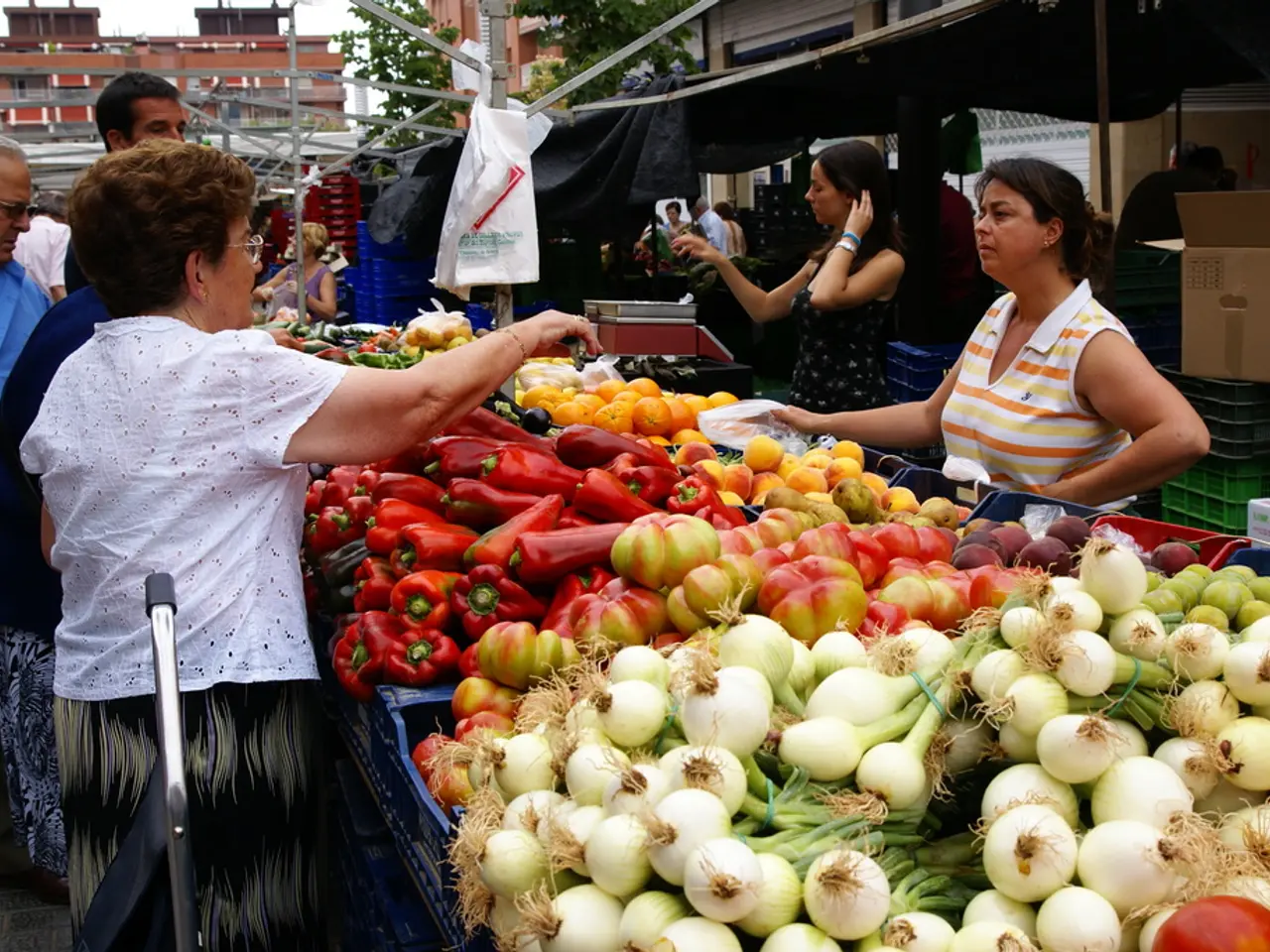Questioning the commitment: Unexpected skepticism about plastic-free policies
In South Africa, plastic pipes are a vital component of the water and sanitation infrastructure, providing safe, clean drinking water to remote communities. This essential material is not only lightweight, durable, and corrosion-resistant but also plays a crucial role in various sectors of society.
Plastics SA, an organisation advocating for responsible use of plastics, has highlighted the importance of modern life without plastics being unimaginable. From communication and connectivity to medicine and the fashion industry, plastics are indispensable. For instance, smartphones, laptops, and high-tech devices rely on plastics for their lightweight, efficient, and affordable properties. Similarly, modern medicine would be inconceivable without disposable syringes, IV bags, surgical gloves, hearing aids, and Personal Protective Equipment (PPE) made from plastic.
However, the increasing consumption of plastics has led to concerns about pollution. The average South African consumes approximately 26 kilograms of plastic per person per year, equivalent to the weight of one packed suitcase or two 12.5 kg bags of maize meal. To address this issue, Plastics SA is urging citizens to prioritise responsible consumption, improved recycling systems, and innovation in product design and end-of-solutions.
South Africa has made notable strides in developing a circular economy for plastics, diverting thousands of tonnes of plastic from landfill through recycling efforts each year. The country has some of the highest mechanical recycling rates in the world for developing countries, with over 28% of post-consumer plastics being recycled locally. Local producer responsibility organisations (PROs) and recyclers are working closely with brand owners and manufacturers to increase recyclability and design-for-recycling initiatives.
Evidence-based solutions are being implemented to tackle plastic pollution. Operation Clean Sweep (OCS) aims to reduce plastic pellet, flake, and powder loss into waterways by educating manufacturers and recyclers about safe manufacturing processes. The Fishing Line Bin Project involves installing bins for discarded monofilament fishing lines at popular angling beaches, removing over 350 kg of discarded fishing line and hundreds of fishing hooks.
Circular economy initiatives, such as the South African Plastics Pact, are working towards a circular economy for plastic packaging. This involves designing plastic packaging for recyclability and ensuring that it remains in the value chain through collection, sorting, recycling, and remanufacturing. Consumer education campaigns, like "Responsible Plastics July," aim to educate consumers about the appropriate use and benefits of plastics, while highlighting the importance of keeping plastics within the economy to prevent environmental harm.
Pragmatic approaches, such as Extended Producer Responsibility (EPR) Regulations and Life Cycle Assessments (LCAs), are also being addressed. The Department of Forestry, Fisheries and the Environment (DFFE) is reviewing EPR regulations to streamline the role of Producer Responsibility Organisations (PROs), which will help businesses innovate and minimise environmental impact. The DFFE is also addressing regulatory uncertainties around LCAs to provide clearer methodologies for assessing the environmental impact of plastics, supporting more informed decision-making in the plastics industry.
These approaches emphasise the importance of collaboration between government, industry, and consumers to tackle plastic pollution effectively while leveraging the benefits of plastics for economic and social development. For more information, visit www.plasticsinfo.co.za. Plastics SA encourages citizens to participate in Plastics Smart July, a campaign that promotes supporting local recycling initiatives, choosing recyclable products, disposing of waste responsibly, and educating others about the importance of plastics in modern life.
As Anton Hanekom, Executive Director of Plastics SA, emphasises, plastics are not the villain they are often portrayed as, but rather are often the unsung heroes in our daily lives. Instead of living without plastics, South Africans are urged to focus on living smarter with plastics. The Intergovernmental Negotiating Committee (INC-5.2) is preparing for a session in August 2025 to discuss a draft international treaty on plastic pollution, and it is hoped that South Africa's recycling successes will be showcased and its pragmatic solutions adopted globally.
- Plastics SA stresses the unimaginable nature of modern life without plastics, as they are integral across various sectors, from technology to medicine and fashion.
- The excessive consumption of plastics has sparked concerns about pollution, with an average South African consuming about 26 kilograms of plastic per year.
- South Africa is making strides in developing a circular economy for plastics, recycling thousands of tonnes annually and boasting high mechanical recycling rates.
- Evidence-based solutions like Operation Clean Sweep and The Fishing Line Bin Project are employed to reduce plastic pollution and safeguard the environment.
- The South African Plastics Pact is working towards a circular economy for plastic packaging, targeting recyclability, collection, sorting, recycling, and remanufacturing.
- Pragmatic approaches like Extended Producer Responsibility Regulations and Life Cycle Assessments are being pursued, with the Department of Forestry, Fisheries and the Environment working on streamlining producer responsibility organizations and providing clearer methodologies for environmental impact assessment in the plastics industry.




